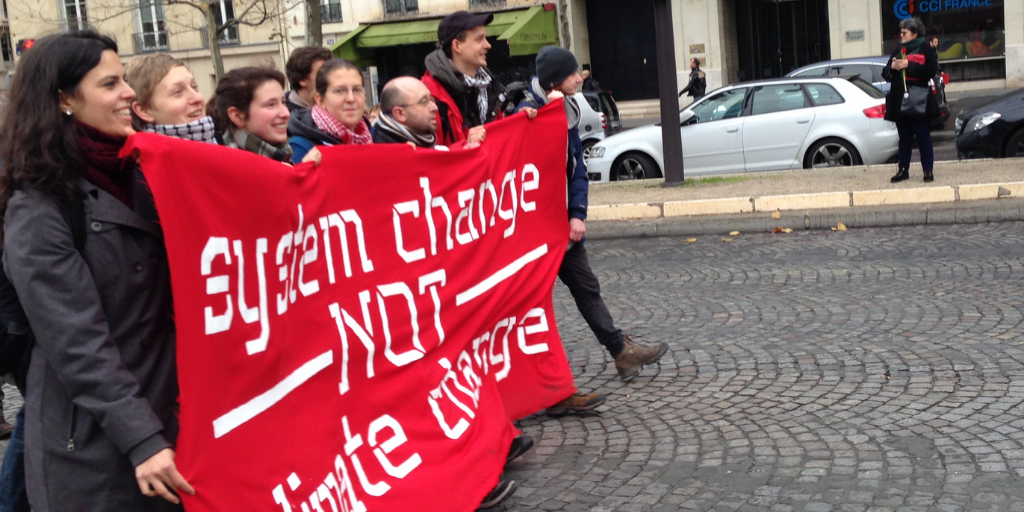Research projects

Impact of the EU Emissions Trading System on firm behavior and CO2 emissions
Misum researchers: Christian Thomann, Associate Professor Royal Institute of Technology, Visiting Research Fellow Swedish House of Finance (SHoF)
Other researchers and collaborators: Per Strömberg, Professor, Department of Finance, SSE and Gustav Martinsson, SBS and visiting researcher SHoF
Project dates: January 2023 to December 2026
Human-induced climate change is the most pressing challenge in our quest to achieve a sustainable society. It also represents a massive market failure in need of policy intervention. Carbon pricing is often emphasized as one of the most important policy tools for achieving decarbonization and creating a more sustainable growth path for the economy. That said, there is still a paucity of comprehensive empirical evidence on whether, and if so to what extent, carbon pricing affects firm behavior and most notably firm-level carbon dioxide (CO2) emissions. This project examines the impact of the EU Emissions Trading System (EU ETS), the largest carbon pricing market in the world, on plant and firm-level emissions, performance and technical change by using and expanding a unique dataset of plant and firm-level outcomes.
This project is funded by Marianne and Marcus Wallenbergs Stiftelse and Jan Wallanders och Tom Hedelius Stiftelse.

Monetizing sustainability
Misum researchers: Emma Sjöström, SSE; Hanna Setterberg, SSE; and Rachelle Belinga, California Lutheran University
Main project stakeholder: Trill Impact
Project dates: June 2022 to May 2024
A growing number of investors are seeking to integrate environmental, social and governance (ESG) issues into financial analysis and decision making. Many struggle, however, with combining non-financial ESG data with highly quantitative and financialized investment models. Pioneering investors are currently attempting to resolve this challenge by translating ESG metrics into monetary terms, e.g. estimating a cost of carbon or a cost of water. To capture how the monetization of sustainability is organized by financial actors, this project will follow the Swedish private equity investor Trill Impact in real-time for 24 months as it begins its “trial and error” journey toward developing methods for monetization. The research results are expected to help inform the future decisions of financial market participants when integrating and monetizing sustainability, and to expand current theoretical debates about the financialization of ESG.
This project is funded by Vinnova. Image from Unsplash.

Shareholder engagement on climate risk
Misum researchers: Emma Sjöström, SSE; Rieneke Slager, Misum Research Fellow 2020/2021; and Jean-Pascal Gond, Misum Research Fellow 2019; Cass Business School, City University London
In this project, we follow a three-year shareholder engagement process with 20 publicly listed utility companies, on the theme of carbon risk. The processes were led by a Scandinavian engagement intermediary. We are exploring which factors will lead to a more or less successful engagement, but also what different roles the engager takes on and what that means for the process.
This project has received partial funding from Vinnova and from Mistra, the Swedish Foundation for Strategic Environmental Research. Image from Unsplash.

Integrating sustainability in investment analysis
Misum researchers: Emma Sjöström, SSE; Rachelle Belinga, California Lutheran University; and Hanna Setterberg, SSE
Main project stakeholder: Swedish Sustainable Investment Forum (SWESIF)
Project start date: 2021
This study explored whether and how financial market actors integrate sustainability in the investment analysis of companies. Specifically, we focused on the relationships and interactions between financial analysts, portfolio managers and stock-listed corporations, since these actor-groups regularly exchange both financial and non-financial information. We note that there has been a marked increase in financial analysts’ focus on sustainability during especially the past two years. The study forwards three major drivers of this change: investors’ growing interest in ESG issues which spurs demand for broader analysis, the EU taxonomy on green economic activities which presents a new research opportunity for financial analysts, and an increased understanding of the financial relevance of sustainability-related issues. The project report offers recommendations for a more ambitious understanding of ESG integration for both financial actors and policymakers.
This project was funded by Swesif. Image from Pexels.

How do acquisitions affect the mental health of employees?
Misum researchers: Ramin Baghai, SSE, and Marieke Bos, SSE
Other researchers or collaborators: ESSEC Paris, Nova School of Business and Economics
Project start date: 2020
The project team investigates if and how mergers and acquisitions (M&As) affect the mental health of employees. Through mergers, firm boundaries are redrawn and internal work processes are reorganized. These changes may transform the scope and nature of jobs and may lead to dismissals. The uncertainty, anxiety, and stress caused by such events may have a profound impact on the workers in the affected firms. Using unique employer-employee matched data on all M&A transactions in Sweden from 2007 to 2015 and analyzing employees’ individual health outcomes based on their medical records, they found that the incidence of stress, anxiety, depression, psychiatric medication usage, and even suicide increase following acquisitions. The study shows how corporate decisions affect a broader set of the firms’ stakeholders, beyond the firms’ own shareholders and creditors. Mental health is a key determinant of individual well-being, and economies incur significant costs due to mental illness in the population. Thus, the project’s insights can contribute to the formulation of corporate and government policies that foster a more sustainable workforce.
This project was funded by NASDAQ Nordic Foundation and Misum. Image from Pexels.

ESG in the earnings call context
Misum researchers: Emma Sjöström, SSE; Florian Eugster, SSE
The aim of this project is to uncover the intensity of climate information in quarterly earnings conferences over a time period of twenty years. The earnings call is one of the most important interfaces between the company and financial analysts, and we hypothesize that for companies in industries where climate change is a material issue, the intensity of climate change-related disclosures in the call, as well as questions raised by analysts in the Q&A session, will increase over time. This research project feeds into a broader research theme at Misum Sustainable Finance Initiative on integrating ESG in the capital market conversation.
This project has received partial funding from Mistra, the Swedish Foundation for Strategic Environmental Research. Image from Unsplash.

Financing municipal sustainable city plans
Misum researchers: Emma Sjöström, SSE; Nina Waltré, SSE
Together with Stockholm Environment Institute (SEI) and CleanTech Scandinavia (CTS), we are exploring the scope of Swedish municipalities’ sustainability plans, what level of financing is needed in order to achieve the plans, and to what extent private capital might help to fill any gaps.
The project is funded by Viable Cities. Read more about the project here. Image from Unsplash.

Shades of green: why firms issue green bonds
Misum researcher: Ramin Baghai, SSE
We study the economic function of the market for corporate green bonds. We develop a simple theoretical framework of green bond issuance in a setting where investors who value sustainability can invest in both the debt and equity of firms. We test model predictions using a unique database of green bond issuance and secondary market bond prices. To calculate the relative price of green bonds, we match green bonds with similar ordinary bonds of the same issuer. Green bonds have lower yields. The relationship between the overall sustainability of a firm’s assets and the benefits from the green bond issuance is inverse U-shaped: intermediately sustainable firms benefit the most from this market. Our results demonstrate how credit markets have an advantage (over equity markets) in allowing differential costs of capital for investments of the same firm but with different sustainability. Image from Pexels.

Sustainable finance campaigns and NGO engagement with finance in Sweden
Misum researcher: Svetlana Gross, SSE
This project is an interview-based empirical study of the landscape of sustainability-related activist and NGO engagement with the financial sector in Sweden. The study focuses on campaigns and projects that either specifically target climate change or include it along with other aspects of environmental and social sustainability. In the past decade, environmental and human rights NGOs have increasingly targeted financial actors, including pension funds, banks and asset managers, demanding changes such as for example more stringent legislation, divestment from fossil fuels and other activities with negative environmental and human impacts, and more transparency. This study aims to contribute to a better understanding of the NGOs perspectives on finance and the roles they play in the transformation of the financial sector.
This project is co-funded by the Stockholm Sustainable Finance Centre. Photo by Svetlana Gross.